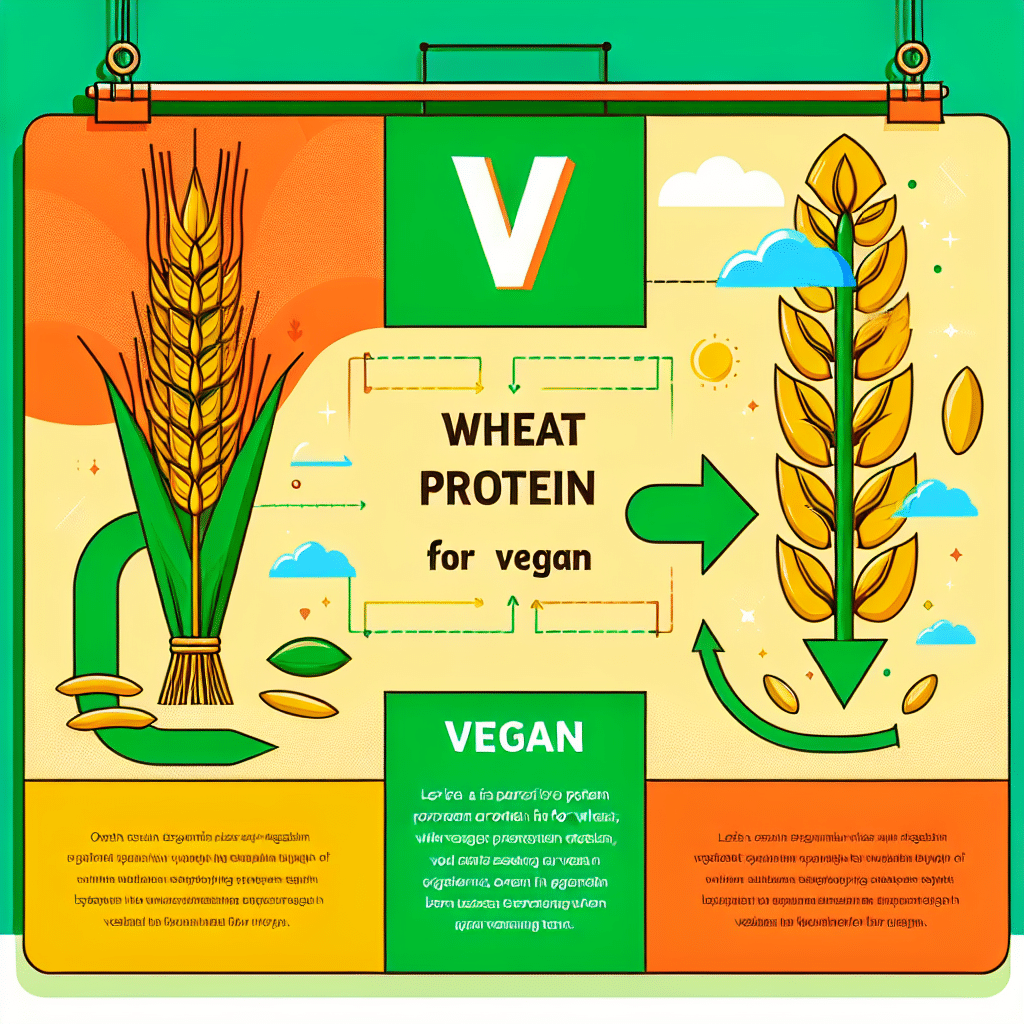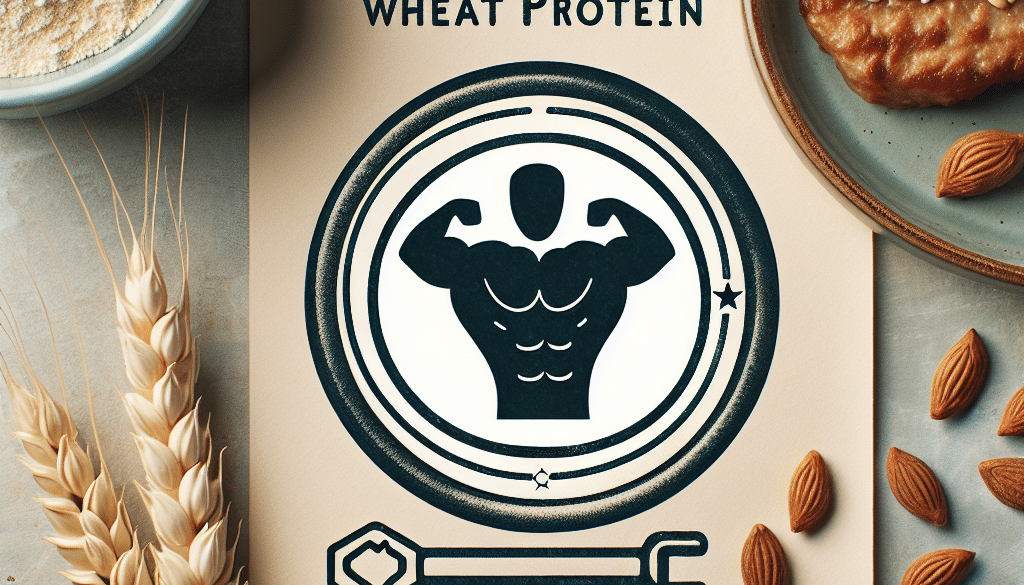What Is Wheat Protein For Vegans?
-
Table of Contents
- Wheat Protein for Vegans: A Comprehensive Guide
- Understanding Wheat Protein
- The Nutritional Profile of Wheat Protein
- Benefits of Wheat Protein for Vegans
- How Vegans Can Incorporate Wheat Protein into Their Diet
- Case Studies and Statistics: The Rise of Wheat Protein in Vegan Diets
- Considerations and Potential Downsides
- Conclusion: The Role of Wheat Protein in Vegan Nutrition
- Discover ETprotein’s Premium Vegan Protein Products
Wheat Protein for Vegans: A Comprehensive Guide

As the vegan lifestyle continues to gain popularity, the quest for plant-based protein sources has become a priority for many. Wheat protein emerges as a powerful contender in the plant-based protein arena, offering vegans a versatile and nutritious option to meet their dietary needs. This article delves into the world of wheat protein, exploring its benefits, uses, and why it’s an essential component of a vegan diet.
Understanding Wheat Protein
Wheat protein, also known as wheat gluten, seitan, or simply gluten, is a protein derived from wheat. It is made by washing wheat flour dough with water until all the starch granules have been removed, leaving behind a sticky mass of pure gluten protein. This protein is then cooked and used in various vegan dishes as a meat substitute due to its chewy texture and ability to absorb flavors.
The Nutritional Profile of Wheat Protein
Wheat protein is not only rich in protein but also contains a variety of other nutrients that are beneficial for health. Here’s a breakdown of its nutritional content:
- High in protein: Wheat protein is an excellent source of plant-based protein, making it a staple in vegan diets.
- Low in fat: It is naturally low in fat, which can be advantageous for those looking to manage their weight.
- Minerals: It contains essential minerals such as iron, selenium, and phosphorus.
- Vitamins: Some brands of wheat protein are fortified with additional vitamins, including B vitamins.
However, it’s important to note that wheat protein is not a complete protein, as it lacks sufficient amounts of the essential amino acid lysine. Vegans should ensure they consume a variety of protein sources to obtain all essential amino acids.
Benefits of Wheat Protein for Vegans
Wheat protein offers several advantages for those following a vegan diet:
- Protein Content: It provides a high amount of protein, which is crucial for muscle repair, immune function, and overall health.
- Texture: Its meat-like texture makes it an ideal meat substitute in many dishes, providing a satisfying chewiness that is often missing in plant-based meals.
- Versatility: Wheat protein can be flavored in countless ways, making it a versatile ingredient in the kitchen.
- Satiety: The high protein content can help you feel full longer, aiding in weight management.
How Vegans Can Incorporate Wheat Protein into Their Diet
There are numerous ways to include wheat protein in a vegan diet. Here are some ideas:
- Stir-fries: Add it to stir-fries for a protein boost.
- Grilled: Marinate and grill it for a barbecue experience.
- Stews and Soups: Use it in stews and soups to add texture and heartiness.
- Sandwiches: Slice it thin and use it in sandwiches or wraps.
- Snacks: Create wheat protein jerky as a savory snack.
Case Studies and Statistics: The Rise of Wheat Protein in Vegan Diets
Recent studies and market research highlight the growing trend of wheat protein in vegan and vegetarian diets. For instance, a report by MarketsandMarkets predicts that the wheat protein market will reach USD 3.1 billion by 2026, growing at a CAGR of 5.0% from 2021 to 2026. This growth is attributed to the rising demand for plant-based proteins among health-conscious consumers, including vegans.
Moreover, a study published in the Journal of Food Science and Technology found that wheat gluten could be effectively used as a meat substitute in vegan products without compromising sensory qualities. This demonstrates the potential of wheat protein to play a significant role in the future of vegan nutrition.
Considerations and Potential Downsides
While wheat protein is a valuable resource for vegans, there are some considerations to keep in mind:
- Gluten Sensitivity: Individuals with celiac disease or gluten sensitivity should avoid wheat protein.
- Complete Protein: As mentioned earlier, it is not a complete protein, so it should be part of a varied diet.
- Processing: Some wheat protein products may be heavily processed. Opt for less processed options when possible.
Conclusion: The Role of Wheat Protein in Vegan Nutrition
Wheat protein is a nutritious and versatile ingredient that can play a significant role in a vegan diet. Its high protein content, meat-like texture, and versatility make it an excellent choice for those looking to diversify their plant-based protein sources. By incorporating wheat protein into their meals, vegans can enjoy delicious, satisfying, and nutritionally balanced dishes.
Discover ETprotein’s Premium Vegan Protein Products
If you’re looking for high-quality wheat protein and other vegan protein options, ETprotein offers a range of products that cater to your needs. Their selection includes organic rice protein, pea protein, and various seed proteins, all characterized by a neutral taste and non-GMO, allergen-free attributes. With purity levels exceeding 98%, ETprotein’s offerings are ideal for various industries, including nutraceuticals, pharmaceuticals, and food and beverage.
ETprotein’s commitment to excellence and customer satisfaction makes them a top choice for anyone seeking plant-based protein solutions. To explore their products and learn more about how they can enhance your vegan diet, contact ETprotein and email sales(at)ETprotein.com today.
About ETprotein:
ETprotein, a reputable protein and L-(+)-Ergothioneine (EGT) Chinese factory manufacturer and supplier, is renowned for producing, stocking, exporting, and delivering the highest quality organic bulk vegan proteins and L-(+)-Ergothioneine. They include Organic rice protein, clear rice protein, pea protein, clear pea protein, watermelon seed protein, pumpkin seed protein, sunflower seed protein, mung bean protein, peanut protein, and L-(+)-Ergothioneine EGT Pharmaceutical grade, L-(+)-Ergothioneine EGT food grade, L-(+)-Ergothioneine EGT cosmetic grade, L-(+)-Ergothioneine EGT reference grade and L-(+)-Ergothioneine EGT standard. Their offerings, characterized by a neutral taste, non-GMO, allergen-free attributes, with L-(+)-Ergothioneine purity over 98%, 99%, cater to a diverse range of industries. They serve nutraceutical, pharmaceutical, cosmeceutical, veterinary, as well as food and beverage finished product distributors, traders, and manufacturers across Europe, USA, Canada, Australia, Thailand, Japan, Korea, Brazil, and Chile, among others.
ETprotein specialization includes exporting and delivering tailor-made protein powder and finished nutritional supplements. Their extensive product range covers sectors like Food and Beverage, Sports Nutrition, Weight Management, Dietary Supplements, Health and Wellness Products, and Infant Formula, ensuring comprehensive solutions to meet all your protein needs.
As a trusted company by leading global food and beverage brands and Fortune 500 companies, ETprotein reinforces China’s reputation in the global arena. For more information or to sample their products, please contact them and email sales(at)ETprotein.com today.














